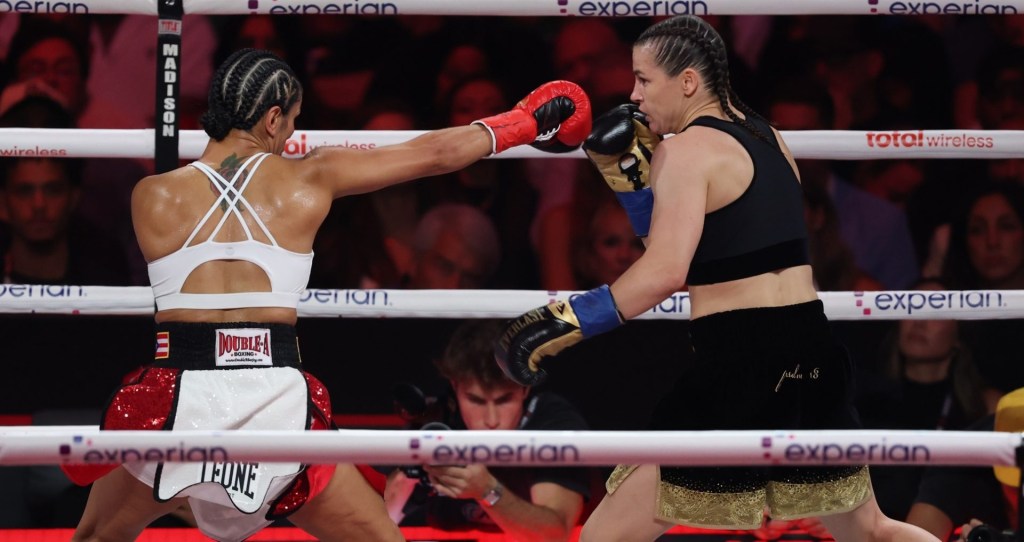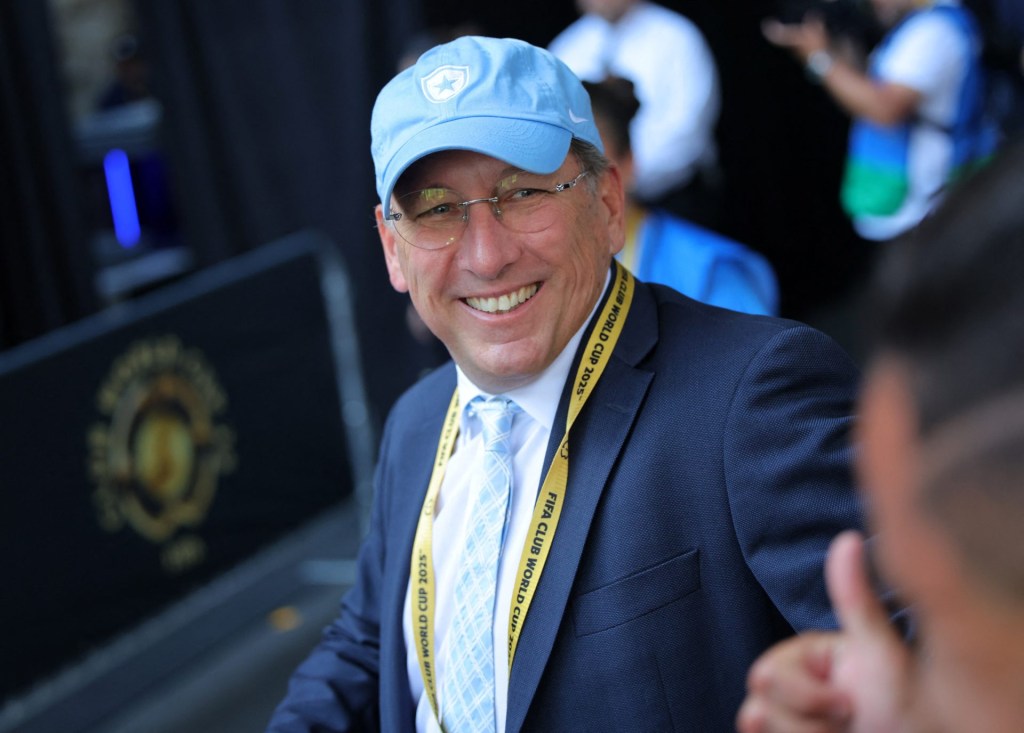By: Joe Londergan, @joehio_

Front Office Sports is proud to have sat down with Drew Davison, sports journalist for the Fort Worth Star-Telegram. Drew currently covers the Dallas Cowboys and previously covered the Texas Rangers from 2011 to 2014. Drew kindly offered his time to share a few words about the life of a journalist, the unique aspects of covering one of the nation’s most popular teams, and avoiding big mistakes as a young writer.
Take us through your background a little. Where are you from and what do you think was your first exposure to the business side of the sports industry?
I’m from Kansas City originally. I went to high school there and then went to the University of Kansas, graduated in 2007, and I would say probably in college was the first time that I really pursued journalism and sports and saw the business side. I worked for the student newspaper there covering everything from football, to basketball, to the baseball and volleyball teams. Any sport, you name it. Mark Mangino was the (football) coach then and he wasn’t the most media friendly coach, let’s say. So I kind of got my first taste of like ‘ok, some coaches can be a little testy’, or ‘out there’ or what have you.
Obviously he did a great job coaching the football team and getting them to win, but that would probably be my first experience. Then I went on to intern at MLB.com covering the Texas Rangers and I guess that was my first real life experience covering a pro baseball team and just dealing with players on an everyday basis and really kind of learning how to talk to them. Everyone wants to talk if they’re playing well and scoring lots of touchdowns or hitting home runs or throwing shutouts, but that was a pretty bad Rangers team and I kind of learned how to deal with and handle players who are struggling or in the midst of losing seasons. From that point on I’ve kind of seen the good, bad, and ugly of everything in sports.
Were there stops in-between working for MLB.com and the Star-Telegram?
I pretty much went from there to the Star-Telegram where I started out as a correspondent. I was pretty much full time without benefits, so to speak. I got $500 a week or something like that starting out, which was fine with me. I was just happy to have a job. So I started out covering high school sports. I covered a lot of Friday night football games and obviously high school basketball as well. To be honest, I couldn’t have asked for a better kind of first job, because when you are covering high school sports you have to do it all: you keep the stats, you have to produce the box score and you’re your own PR guy in terms of finding coaches and rosters. After the game, you’re kind of the only one stopping players as they’re walking to their car, or bus, or what have you.
The interest in Texas for high school football is high, so that was a good experience. Not only do they have good football teams, but their basketball and baseball teams are excellent as well and I was lucky enough to cover some really good teams. From there, I worked my way up by covering more and more college assignments and helping out with the Cowboys, Rangers, and Mavericks sidebars. From there, I became the Rangers beat writer, or one of the Rangers beat writers, in 2011 and was with them through the 2014 season and then I switched and just finished my second year covering the Cowboys.
You mentioned the kind of time commitment that’s expected of young journalists combined with, in a lot of cases, low pay or low appreciation. What’s the best piece of advice you can give to someone starting out who is struggling with that aspect of the job?
I think the best thing for people who are trying to break into the business or get into it, and I’m still young, I wouldn’t say I’m established by any means, I’m still fairly new on the Cowboys beat and all that… But I think you just have to be willing to work for somewhat low pay compared to, for instance, a guy who majored in accounting or engineering. I know their starting salaries are pretty substantial, but in journalism you have to be willing to take any assignment. I think my first assignment with the Star-Telegram was an Olympic showcase where they were showcasing the luge for middle school kids. It was literally just kids laying down on a skateboard going down this little hill. They had a guy who either made the Olympic luge team or he was in the mix for it who was there demonstrating and helping out. Early on, you can’t really be too picky even if you think it is low end.
I also think you have to be willing to move. I’ve been fortunate getting to start at the Star-Telegram as it is in big city, but I also interviewed in Hobbs, New Mexico and I was about to take that job but then I ended up getting hooked on with the Star-Telegram on a more regular basis. So you have to be willing to move and try to work your way up the ladder that way. I think for people coming out of college, don’t feel like covering high school sports is a bad thing because like I said, you’re keeping the stats, you’re pretty much conducting the interviews, you’re your own PR guy, you have to come up with all the story lines and all the notes. I think it really just helps you become an all-around better journalist.
Even though it was just high school sports, I was still able to cover some big stories. For example, this high school basketball coach who went to the state championship game and lost made remarks about the officials and ended up getting fired after that. Because of this, he ended up suing the school district and it became a pretty big story within in the city.
If you are coming out of college you have to be hungry and continually on the lookout for stories.
Let’s talk about the Cowboys for a second. The Cowboys have the largest social media following in the NFL. Are there unique challenges or positives that come from covering a team with that high of a profile?
It’s a very competitive beat. The term is a ‘fishbowl’ organization where there are so many eyes on the team that it’s hard to keep anything under wraps or under cover. I think that the team sometimes pushes the envelope too. For example, they posted a video of a training camp fight last fall and it left people wondering whether or not they should post that. They do a good job from the social media aspect of engaging with fans and it does make it tough just because there are so many different people covering the team on a daily basis. You have to find the stories that haven’t been told or find a perspective that might not be out there. It’s a tough beat, but it’s a fun beat. It’s essentially covering the Yankees, or the Lakers, or Lebron. It’s one of the better beats out there.
What’s the biggest piece of advice you can give to a young journalist who’s working a high profile beat?
I think the biggest thing is to just learn the history of the organization. The fan base is going to be very passionate about the organization and they will know the history. I knew the Rangers pretty much inside and out when I was covering them just in terms of their former draft picks or the players that cycled through there. I’m currently doing that with the Cowboys now as I try to become as knowledgeable as I can about the franchise. The other thing is just to get to know the players, and know the coaches, and obviously the front office.
Try to develop as strong relationships as you can. It’s a lot of work, especially with a major college or a major team just because there are so many reporters and you’re going against guys who have been on the beat for a decade or longer. I’m fortunate because two of my coworkers have been covering the team for more than two decade and they’ve been around and have been invaluable resources to me. It’s not bad to rely on columnists, or the old beat writer, or whoever to help you and show you the ropes.
What’s the most common mistake you see young journalists making today?
I think it has been out there, but the number one thing is that it is more important to get the story right and make sure the context is right as opposed to being the first. Obviously you want to break the story, you want to be the first one on it, but at the end of the day it’s more important being right than being first. I think a lot of guys who might try to break a story or get a scoop sometimes can get careless in 140 characters or in a quick Facebook post. So I think it’s important to just make sure you ‘dot your i’s and cross your t’s’ so to speak.
So being a beat writer, there’s a huge amount of travel involved and it can be physically and emotionally taxing after a while. Do you have any opinion on that one way or another?
It sounds cool to say ‘I cover the Texas Rangers” or ‘I cover the Dallas Cowboys’ but a lot of people do not understand the travel because it’s really not a vacation. When you go to Buffalo for instance and you fly in Saturday, dealing with bad weather all over the country and flight delays, just trying to get there is not all that fun. Don’t get me wrong, traveling is fun because it is cool to see different parts of the country, but it does add up. You’re gone two and a half weeks for training camp with the Cowboys. You’re gone more than a month if you’re covering spring training baseball. So there’s a lot of time away from home.
What do you think is the most rewarding aspect of your job?
I think just being able to tell a good story. To do something that kind of creates a buzz or a stir. For the most part, it’s just telling a story, especially if you’re the only one telling it. The most rewarding stories for me are the ones that I’ve been the one to tell. My first big one was tracking down Rafael Palmeiro his first year eligible on the Hall of Fame ballot. He had not talked in five or six years and I just went to his son’s high school summer game and talked with him [Palmeiro] for 45 minutes or an hour and I was able to put together a good story because of it. I also did a story on a guy who got fired at Fidelity Investments for playing Fantasy football. He was one of four guys fired and it made for an interesting storyline. It’s just stuff like that you might not hear that much about but it kind of changes the way people might think of a subject or person.
Parting Wisdom?
I would always tell people that journalism is a non-stable industry because you see a lot of layoffs but, at the end of the day, if you work hard and grind it out it is a rewarding profession. It’s a fun job that is also challenging. If you get the chance to pursue it as a profession it’s worth trying to wait it out as long as you can to try and make it work.
We would like to thank Drew for his time and insight and we wish him the best in all his future endeavors!
You can follow Drew on Twitter here and connect with him on LinkedIn here!

















